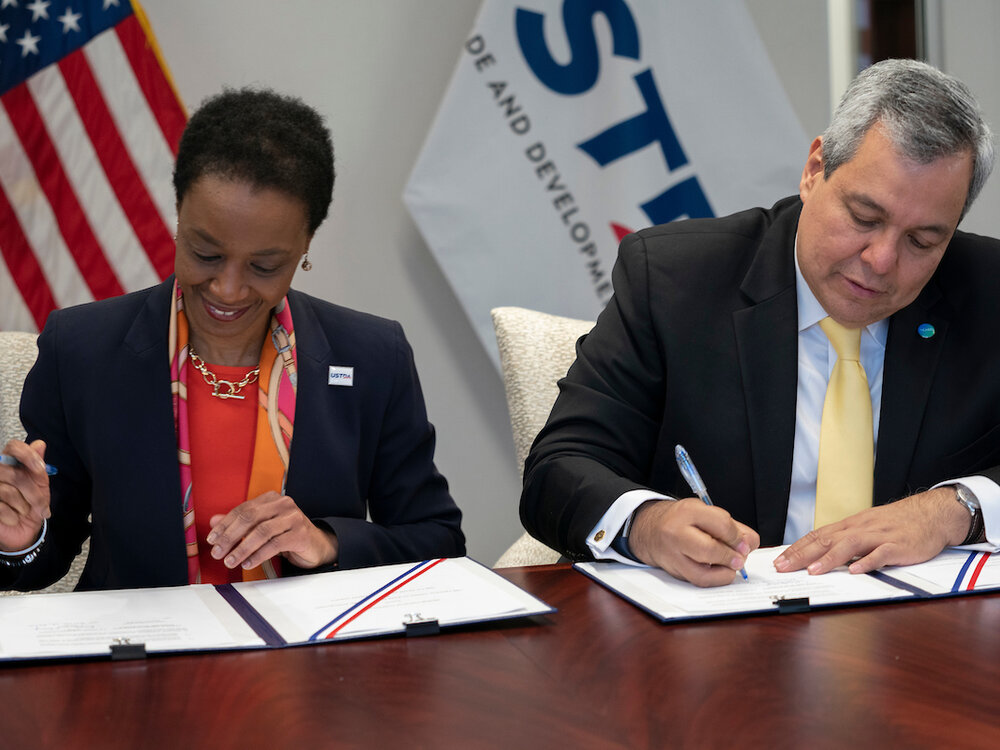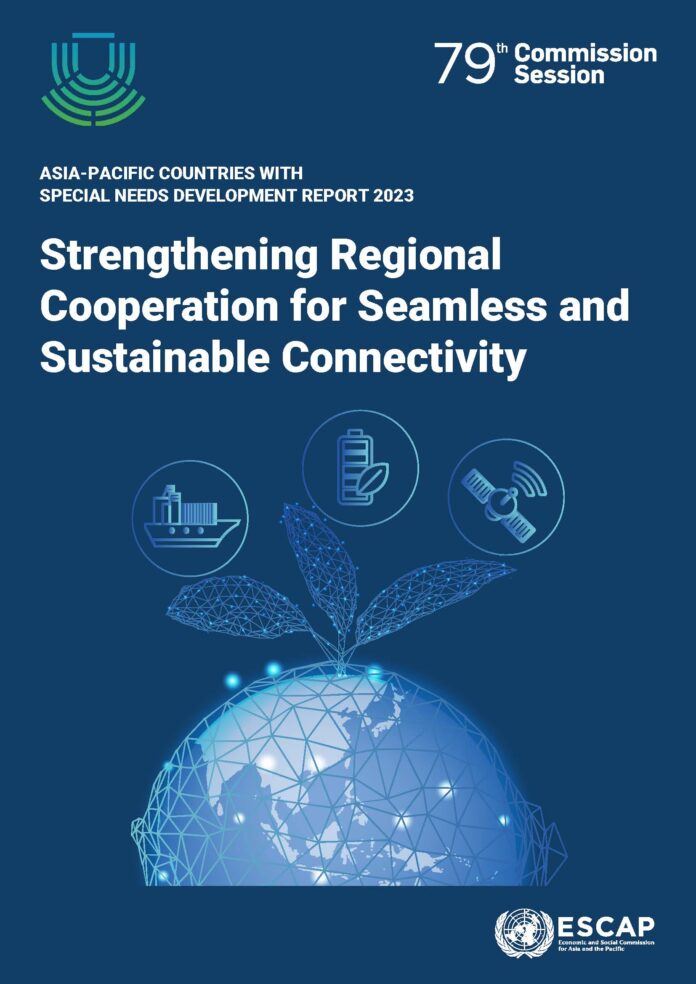In 2024, regional cooperation has become increasingly pivotal in addressing global challenges and fostering mutual growth. This article delves into the most crucial developments and insights from recent regional collaborations. It explores a range of agreements and treaties that have been signed, highlights economic collaborations and trade deals, and examines political alliances and diplomatic efforts. Additionally, it covers security and defense partnerships, environmental and sustainability initiatives, and technological and innovation exchanges. Cultural and educational collaborations are also discussed, providing a comprehensive overview of how regions are working together. Finally, the article looks ahead to future prospects and challenges for regional cooperation.
Discover more about this topic with tirfblog.com in detail.
1. Introduction to Regional Cooperation in 2024
In 2024, regional cooperation has emerged as a cornerstone for addressing a multitude of global challenges and fostering sustainable development. As nations increasingly recognize the limitations of isolated efforts, collaborative frameworks are becoming essential for tackling complex issues such as climate change, economic instability, security threats, and technological advancements. This year has seen a surge in regional agreements and initiatives aimed at enhancing cooperation across various sectors.
Regional cooperation in 2024 is characterized by a dynamic interplay of economic, political, and social factors. Countries are forming alliances and signing treaties to boost trade, enhance security, and promote cultural and educational exchanges. These collaborations are not only strengthening bilateral and multilateral relationships but also paving the way for innovative solutions to shared problems. The focus has shifted towards creating resilient and adaptable partnerships that can withstand global uncertainties and geopolitical shifts.
Moreover, the emphasis on sustainability and environmental protection has driven regions to work together on green initiatives and sustainable development goals. Technological exchanges and innovation are at the forefront of these efforts, as regions leverage each other’s strengths to drive progress. As we delve into the specifics of regional cooperation in 2024, it becomes evident that the future of global stability and prosperity hinges on these collaborative efforts.
2. Significant Agreements and Treaties Signed
In 2024, significant agreements and treaties have been signed, marking a new era of regional cooperation. These accords span various domains, including trade, security, environment, and cultural exchanges, reflecting the diverse needs and priorities of different regions. One notable example is the Comprehensive Economic Partnership Agreement (CEPA) between major economic blocs, aimed at reducing trade barriers, enhancing market access, and fostering economic integration. This agreement has set the stage for increased cross-border investments and collaboration in key industries.
In the realm of security, the Regional Defense Cooperation Treaty (RDCT) has been a milestone, uniting multiple countries in a collective effort to address regional threats and enhance military interoperability. This treaty underscores the importance of a united front in maintaining regional stability and responding to emerging security challenges.
Environmental cooperation has also seen a boost with the Green Accord, an ambitious treaty focusing on joint efforts to combat climate change, protect biodiversity, and promote sustainable development. This agreement highlights the shared commitment of regional partners to address environmental issues collaboratively.
Cultural and educational treaties have further enriched regional cooperation, fostering greater understanding and exchange between diverse communities. These agreements collectively signify a robust and multifaceted approach to regional cooperation in 2024, laying a solid foundation for future endeavors.

3. Economic Collaborations and Trade Deals
In 2024, economic collaborations and trade deals have become pivotal components of regional cooperation, driving growth and development across multiple sectors. Major economic blocs have entered into landmark agreements aimed at reducing trade barriers, harmonizing regulations, and facilitating smoother cross-border transactions. The Comprehensive Economic Partnership Agreement (CEPA) has been particularly influential, enabling countries to access new markets and diversify their economic activities. This agreement has led to increased foreign direct investment, spurring innovation and job creation.
Additionally, bilateral and multilateral trade deals have focused on strategic industries such as technology, renewable energy, and agriculture. These deals are designed to leverage the comparative advantages of different regions, fostering specialization and enhancing competitive edges. For instance, technology exchange agreements have enabled the sharing of cutting-edge innovations, while agricultural trade deals have ensured food security and sustainability.
Moreover, economic collaborations have extended to infrastructure development projects, with countries jointly investing in transportation networks, energy grids, and digital infrastructure. These projects aim to enhance connectivity and support economic integration, creating a more resilient and interconnected regional economy. Overall, the economic collaborations and trade deals of 2024 underscore the importance of cooperation in achieving shared prosperity and stability.

4. Political Alliances and Diplomatic Efforts
In 2024, political alliances and diplomatic efforts have played a crucial role in shaping regional cooperation, as countries strive to navigate a complex and interconnected global landscape. The formation of new political alliances has been driven by the need to address shared challenges such as geopolitical tensions, global health crises, and economic uncertainties. These alliances are not only strengthening bilateral and multilateral relations but also enhancing the collective bargaining power of regions on the global stage.
One of the most notable developments has been the establishment of the Regional Stability Pact (RSP), which brings together nations committed to promoting peace, security, and democratic governance. This pact includes mechanisms for conflict resolution, joint military exercises, and intelligence sharing, thereby fostering a collaborative approach to regional stability.
Diplomatic efforts have also intensified, with countries engaging in high-level dialogues and summits to address pressing issues and align their foreign policies. These efforts have resulted in the signing of numerous Memorandums of Understanding (MoUs) and joint declarations, which outline shared goals and strategies for cooperation. For instance, diplomatic initiatives have led to agreements on human rights, cybersecurity, and disaster management, reflecting the broad spectrum of areas where regional cooperation is essential.
Furthermore, diplomatic efforts have facilitated cultural and educational exchanges, enhancing mutual understanding and strengthening the social fabric of regions. These initiatives underscore the importance of diplomacy in building trust, resolving conflicts, and creating a conducive environment for sustainable regional development. In summary, the political alliances and diplomatic efforts of 2024 are pivotal in fostering a cooperative and resilient global community.

5. Security and Defense Partnerships
In 2024, security and defense partnerships have been integral to enhancing regional stability and collective security. Countries have recognized the importance of collaborative defense strategies in addressing evolving threats such as terrorism, cyberattacks, and regional conflicts. The Regional Defense Cooperation Treaty (RDCT) exemplifies this trend, uniting multiple nations in a comprehensive framework for joint military exercises, intelligence sharing, and coordinated defense initiatives.
These partnerships are designed to increase military interoperability and preparedness, ensuring a unified response to security challenges. Joint training programs and defense technology exchanges have bolstered the capabilities of regional forces, promoting a more robust and effective defense posture.
Moreover, these collaborations extend to cybersecurity, with nations working together to protect critical infrastructure and counter cyber threats. The emphasis on security and defense partnerships underscores a collective commitment to maintaining peace and stability in an increasingly complex global environment. By pooling resources and expertise, these partnerships enhance regional security and contribute to global peacekeeping efforts.

6. Environmental and Sustainability Initiatives
In 2024, environmental and sustainability initiatives have become a cornerstone of regional cooperation, driven by the urgent need to address climate change and promote sustainable development. Countries are increasingly recognizing that environmental challenges transcend borders and require collective action. The Green Accord stands out as a significant treaty, bringing together nations to collaborate on climate action, biodiversity protection, and sustainable resource management.
Under the Green Accord, countries have committed to ambitious targets for reducing greenhouse gas emissions, transitioning to renewable energy sources, and enhancing energy efficiency. These commitments are supported by joint projects and funding mechanisms aimed at accelerating the adoption of green technologies and sustainable practices. For example, regional renewable energy projects are being developed to harness solar, wind, and hydroelectric power, reducing reliance on fossil fuels and enhancing energy security.
Furthermore, collaborative efforts are underway to protect and restore natural ecosystems, including forests, wetlands, and marine areas. These initiatives involve cross-border conservation projects, reforestation programs, and measures to combat pollution and plastic waste. By sharing knowledge and resources, countries are better equipped to tackle environmental degradation and promote biodiversity.
Education and awareness campaigns are also a key component of these initiatives, aimed at fostering a culture of sustainability and encouraging community participation. Through these environmental and sustainability initiatives, regions are working together to create a healthier, more resilient planet for future generations. The collective efforts underscore the critical importance of regional cooperation in achieving global environmental goals.
7. Technological and Innovation Exchanges
In 2024, technological and innovation exchanges have become pivotal in driving regional cooperation, fostering growth, and addressing shared challenges. Countries are actively engaging in collaborative research and development projects, focusing on cutting-edge technologies such as artificial intelligence, renewable energy, and biotechnology. These exchanges are designed to leverage regional expertise and resources, accelerating innovation and technological advancement.
Joint innovation hubs and research centers have been established, facilitating the exchange of ideas, skills, and technologies. These centers are instrumental in developing new solutions to pressing issues like climate change, healthcare, and sustainable development. For instance, collaborative efforts in renewable energy technologies are helping regions transition to cleaner energy sources, reducing carbon footprints, and enhancing energy security.
Furthermore, technology transfer agreements are enabling the sharing of advanced technologies and best practices, particularly benefiting developing regions. These exchanges are fostering a more inclusive technological landscape, ensuring that all regions can participate in and benefit from technological progress. Overall, technological and innovation exchanges are key to building resilient, forward-thinking regional economies.
8. Cultural and Educational Collaborations
In 2024, cultural and educational collaborations have emerged as vital components of regional cooperation, enriching societies and fostering mutual understanding. These collaborations span a wide range of initiatives, including cultural exchanges, joint educational programs, and collaborative research projects. By bridging cultural gaps and enhancing educational opportunities, regions are working together to build more cohesive and informed communities.
Cultural exchanges have been prominent, with countries participating in arts festivals, cultural exhibitions, and heritage preservation projects. These initiatives aim to celebrate and share diverse cultural traditions, fostering a greater appreciation of different ways of life and strengthening cross-cultural ties. For example, art and music festivals have showcased the rich cultural diversity of participating regions, promoting intercultural dialogue and cooperation.
Educational collaborations are also expanding, with universities and research institutions forming partnerships to offer joint degree programs, exchange students, and conduct collaborative research. These programs provide students with global perspectives, enhance academic opportunities, and drive innovation through shared knowledge and resources. Additionally, regional education initiatives focus on addressing common challenges such as improving access to quality education and enhancing skills development.
Overall, these cultural and educational collaborations are instrumental in promoting global understanding, sharing knowledge, and building lasting relationships among regions, contributing to a more interconnected and harmonious world.
9. Future Prospects and Challenges for Regional Cooperation
Looking ahead, the future of regional cooperation is filled with both promising prospects and significant challenges. As countries continue to address shared issues such as climate change, economic disparities, and security threats, regional collaborations are likely to play an increasingly crucial role in finding effective solutions. The potential for expanded economic integration, technological advancement, and cultural exchange offers substantial benefits, including enhanced stability and prosperity across regions.
However, several challenges must be navigated to realize these benefits fully. Geopolitical tensions, varying national interests, and resource limitations can impede progress and complicate collaborative efforts. Additionally, disparities in development levels and capabilities among regions may create imbalances in partnerships and hinder the equitable distribution of benefits.
To overcome these challenges, regions will need to foster resilient and adaptable cooperation frameworks, prioritize inclusivity, and ensure that collaborative initiatives address the needs of all participating members. Strengthening diplomatic relations, enhancing communication, and building trust will be essential in navigating these complexities and achieving sustainable regional cooperation in the future.
In conclusion, 2024 has demonstrated the transformative power of regional cooperation across various domains, from economic and security partnerships to cultural and environmental initiatives. While challenges remain, the advancements in agreements, technological exchanges, and educational collaborations highlight a shared commitment to addressing global issues. By continuing to build on these efforts and addressing obstacles, regions can pave the way for a more prosperous and interconnected future.
tirfblog.com
tirfblog.com

